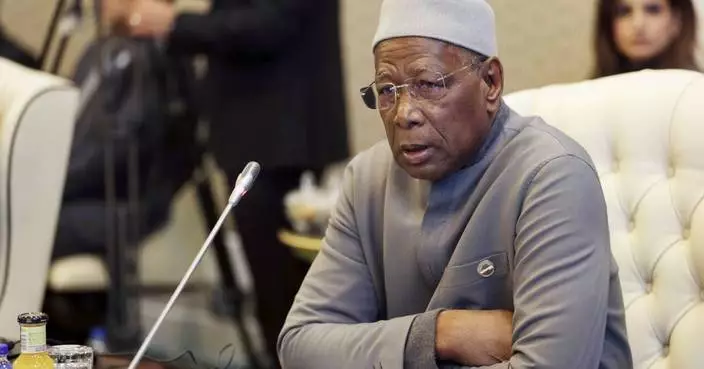Libya's commander who rules the eastern half of the country and who was behind a year-long military attempt to capture the capital, Tripoli, said Friday that oil production would restart soon, ending a months-long blockade of the nation's vital oil fields.
The Tripoli-based National Oil Corporation, however, remained skeptical, and previous attempts to end the oil blockade have repeatedly broken down.
The commander, Khalifa Hifter, promised in a televised address, that oil would start pumping again, for the first time since January. He also said exports would resume “with conditions that ensure a fair distribution of revenue so that they not be used to support terrorist militias” — his jargon for forces loyal to the western-based administration in Tripoli.
He did not elaborate on a political deal that would allow the long-contested fields to go back online. Hifter's forces, backed by Russia, Egypt and the United Arab Emirates, control the country's major oil fields and terminals.
Libya is divided between two rival administrations, based in the country’s east and west, which the U.N. has been trying to steer toward peace talks aimed at ending their years-long conflict. Earlier this month, the two sides agreed on a preliminary deal that would include elections within 18 months and a demilitarization of the contested city of Sirte, controlled by Hifter and the gateway to Libya’s major oil fields and export terminals.
Earlier Friday, the head of the Tripoli-based National Oil Corporation, issued a statement indicating the resumption of oil production was less certain.
Mustafa Sanallah said the corporation would not lift force majeure, a legal maneuver that lets a company get out of its contracts because of extraordinary events, until Russian mercenaries leave the oil fields and export terminals. Sanallah rejected what he called “secret” and “disorganized negotiations” aiming to undercut an internationally-brokered political process to reopen the fields.
Libya’s highly prized, light crude has long been a factor in its civil war, as rival militias and foreign powers jostle for control of Africa’s largest oil reserves. Since Libya descended into chaos following the 2011 uprising that ousted and killed longtime dictator Moammar Gadhafi, the North African country has been split west to east. The U.N.-supported administration in the capital, Tripoli, holds sway over the west, while Hifter and his allies rule the east and south.
“We pledge to block these useless negotiations that aim for nothing except to gain limited political profits,” said Sanallah.
He was referring to back-door talks between Ahmed Matiq, the deputy prime minister of the Tripoli-based administration, and Hifter’s representatives that sought to bring an end to the oil paralysis and create a new mechanism to distribute the country’s petrodollars more equitably.
Hifter's side agreed to enter the talks only after its campaign to take the Libyan capital by force failed in June and the Tripoli-based militias, backed by Turkey, turned the tide of war.
Powerful eastern tribes loyal to Hifter first seized control of the oil fields in January, cutting Libya’s production to a trickle and starving the country of badly needed cash, to protest what they describe as the unfair distribution of oil wealth and the diversion of revenue to Turkish-backed mercenaries fighting on behalf of the Tripoli-based government, which oversees Libya's Central Bank.
The blockade has deprived the National Oil Corporation of nearly $10 billion in revenue and led to nationwide fuel shortages. Power outages across the divided country have piled on misery for millions of Libyans struggling to cope with a dire coronavirus outbreak and devastated infrastructure, triggering street demonstrations that have intensified pressure on the parties to reach a settlement over the country's oil.
Matiq said the decision to immediately reopen Libya’s fields and ports came as part of an economic settlement over oil revenue, involving a joint committee to form a budget, transfer funds and resolve financial disputes between the rival factions. He did not address the scores of Russian mercenaries from Wagner, a Kremlin-linked private security company, stationed across oil fields that the National Oil Corporation says remain a barrier to the resumption of exports.
Hifter’s announcement comes just days after his key rival, Prime Minister Fayez Sarraj of the Tripoli-based government, announced he would hand over power to a new administration in October, raising fears about a possible succession struggle within the government as the U.N. presses ahead with political talks, set to resume soon in Geneva.
Forced to hide her true self, Joe Horras’ transgender daughter struggled with depression and anxiety until three years ago, when she began to take medication to block the onset of puberty. The gender-affirming treatment helped the now-16-year-old find happiness again, her father said.
A decision by the U.S. Supreme Court late Monday allowing Idaho to enforce its ban on such care for minors could jeopardize her wellbeing once again. Horras is scrambling to figure out next steps and is considering leaving Idaho, where he's lived his whole life, to move to another state.
"It would be devastating for her," Horras, who lives in Boise, told The Associated Press. “If she doesn’t have access to that, it will damage her mental health."
Horras is among the Idaho parents desperate to find solutions after their trans children lost access to the gender-affirming care they were receiving. The U.S. Supreme Court's decision allows the state to put in place a 2023 law that subjects physicians to up to 10 years in prison if they provide hormones, puberty blockers or other gender-affirming care to people under age 18. A federal judge in Idaho had previously blocked the law in its entirety.
The ruling will hold while lawsuits against the law proceed through the lower courts, although the two transgender teens who sued to challenge the law will still be able to obtain care.
At least 24 states have adopted bans on gender-affirming care for minors in recent years, and most of them face legal challenges. Twenty of those states besides Idaho are currently enforcing the bans.
Monday’s ruling was the first time the U.S. Supreme Court waded into the issue. The court’s 6-3 ruling steered clear of whether the ban itself is constitutional. Instead, the justices went deep into whether it’s appropriate to put enforcement of a law on hold for everyone, or just those who sue over it, while it works its way through the courts.
In his concurring opinion, Justice Neil Gorsuch said “lower courts would be wise to take heed” and limit use of “universal injunctions” blocking all enforcement of laws that face legal challenges. In a dissent, Justice Ketanji Brown Jackson said the court should not decide the fate of those actions without reading legal briefs and hearing arguments on the issue.
Rights groups in Idaho are supporting families to make sure they're aware the measure has taken effect. The American Civil Liberties Union of Idaho said it plans to hold a virtual event over Zoom with licensed counselors and legal experts to help people process the shock and answer any questions they may have about the law.
“Yesterday was really just an outpouring of fear, questions, people trying to figure out how this is going to affect them personally,” said Jenna Damron, the group's advocacy fellow. “Getting information out quickly that is accurate is kind of our first priority.”
Paul Southwick, legal director for ACLU of Idaho, said the group wants families to know what their options are.
“Gender-affirming medical care is now immediately illegal for minors in the state of Idaho. However, care remains legal for adults, and it’s also legal for minors to seek gender-affirming medical care out of state,” he said.
In Boise, Horras' 16-year-old daughter wears an estrogen patch and receives estrogen injections every six months. Her last shot was in December and Horras now has two months to find a new out-of-state provider who can continue administering the medication. The situation has left him feeling scared, he said, and angry toward the state politicians who passed the law last year.
“It's cruel,” he said.
Advocates, meanwhile, worry that lower-income families won't be able to afford to travel across state lines for care. Arya Shae Walker, a transgender man and activist in the small city of Twin Falls in rural southern Idaho, said he was concerned that people would alter the doses of their current prescriptions in order to make them last longer. His advocacy group has already taken down information on its website on gender-affirming care providers for young people in the area out of concern of potential legal consequences.
The broader issue of bans on gender-affirming care for minors could eventually be before the U.S. Supreme Court again. Last year, a ban on gender-affirming care for minors in Arkansas was shot down by a federal judge, while those in Kentucky and Tennessee were allowed to be enforced by an appeals court after being put on hold by lower-court judges. Montana’s law is not being enforced because of a ruling from a state judge.
Laws barring transgender youth from playing on sports teams that align with their gender identity are also being challenged across the country. An appeals court on Tuesday ruled that West Virginia’s transgender sports ban violates the rights of a teen athlete under Title IX, the federal civil rights law that prohibits sex-based discrimination in schools. Hours later, an Ohio law that bars transgender girls from girls scholastic sports competitions was put on hold by a judge. Set to take effect next week, the law also bans gender-affirming care for transgender youth.
Those who support the bans say they want to protect children and have concerns about the treatments themselves.
Gender-affirming care for youth is supported by major medical organizations, including the American Medical Association, the American Academy of Pediatrics and the American Psychiatric Association. However, England is limiting the ability of people younger than 16 to begin a medical gender transition.
The National Health Service England recently cemented a policy first issued on an interim basis almost a year ago that sets a minimum age at which puberty blockers can be started, along with other requirements. NHS England says there is not enough evidence about their long-term effects, including “sexual, cognitive or broader developmental outcomes.”
Medical professionals define gender dysphoria as psychological distress experienced by those whose gender expression does not match their gender identity. Experts say gender-affirming therapy can lead to lower rates of depression, suicidal thoughts and suicide attempts among transgender people.
Chelsea Gaona-Lincoln, executive director of Idaho-based advocacy group Add The Words, said she's anticipating “a pretty horrendous ripple effect.” But seeing her community uniting in support has given her a glimmer of hope.
“There are people coming together, and it’s so important, for especially our youth, to feel seen and affirmed as they are," she said.
Southwick, the legal director of ACLU of Idaho, said the 9th U.S. Circuit Court of Appeals is expected to hold a hearing this summer on its lawsuit challenging the law.
Associated Press writer Geoff Mulvihill in Cherry Hill, New Jersey, contributed.
This story was first published on April 16, 2024. It was updated on April 18, 2024, to make clear that the 20 states enforcing bans on gender-affirming care for minors are in addition to Idaho and all are among the 24 that have passed laws imposing the bans.
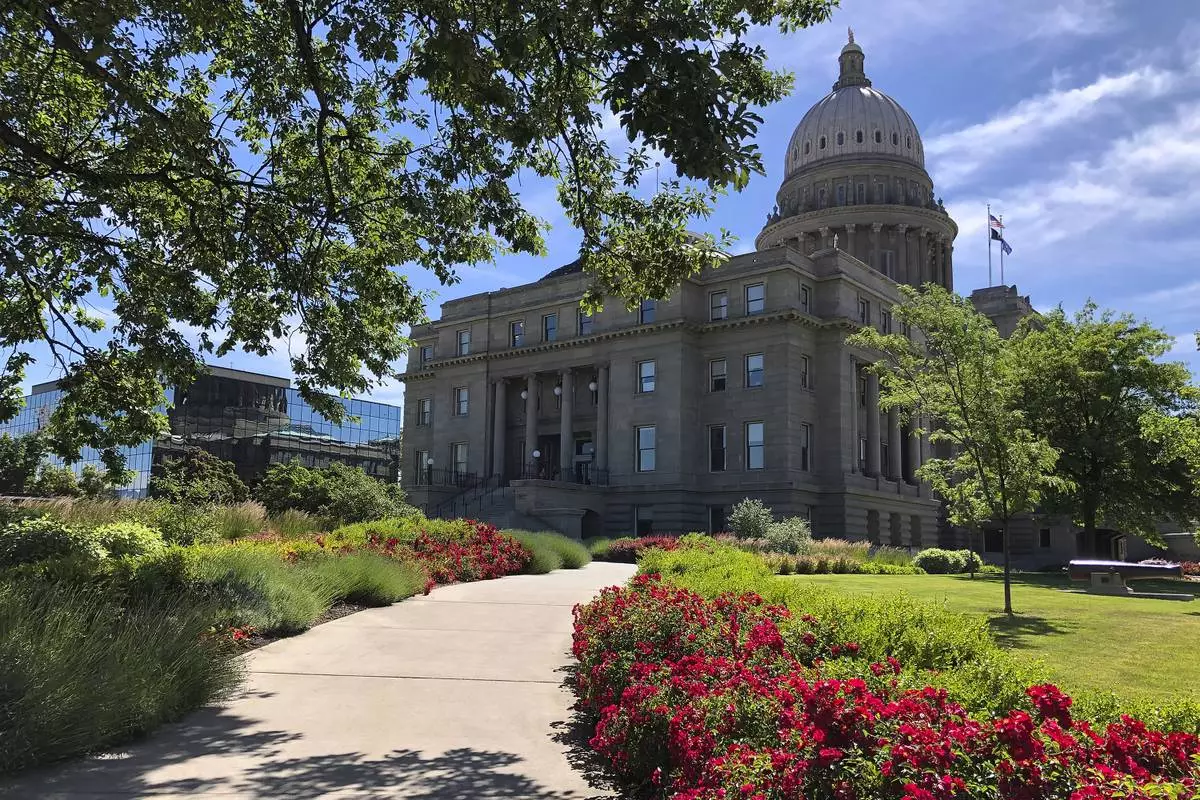
FILE - The Idaho State Capitol in Boise, Idaho, is seen on June 13, 2019. The U.S. Supreme Court's decision on Monday, April 15, 2024, allows the state to put in place a 2023 law that subjects physicians to up to 10 years in prison if they provide hormones, puberty blockers or other gender-affirming care to people under age 18. A federal judge in Idaho had previously blocked the law in its entirety. (AP Photo/Keith Ridler, File)
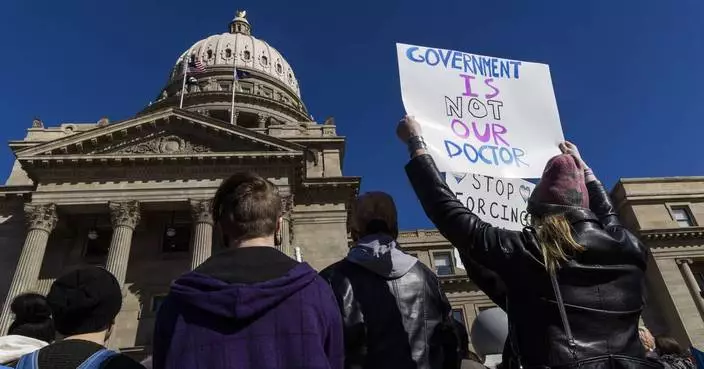
Idaho's ban on youth gender-affirming care has families desperately scrambling for solutions
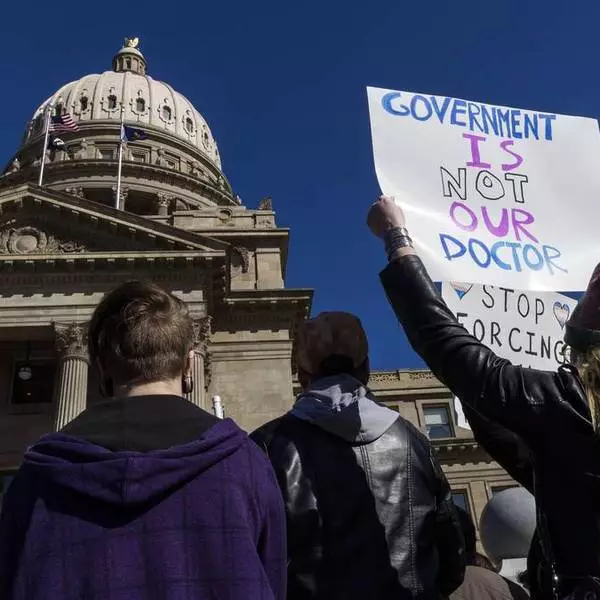
Idaho's ban on youth gender-affirming care has families desperately scrambling for solutions
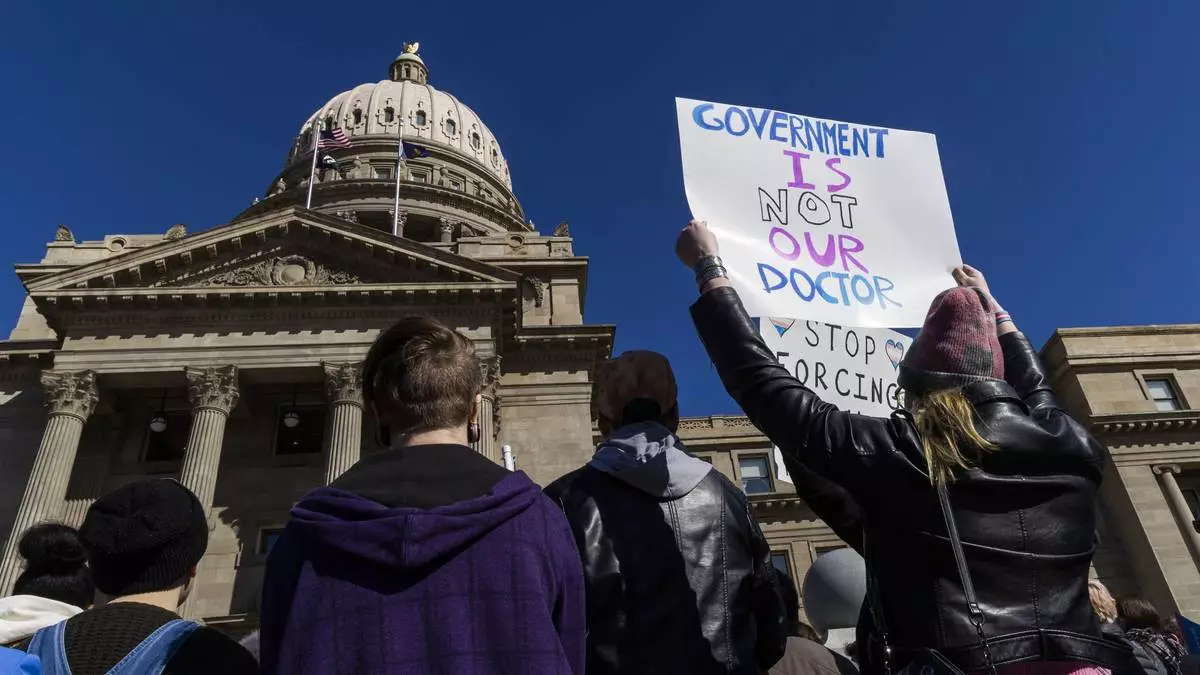
FILE - People gather in front of the Idaho Statehouse in opposition to anti-transgender legislation moving through an Idaho Republican congress, Friday, Feb. 24, 2023, in Boise, Idaho. The U.S. Supreme Court's decision on Monday, April 15, 2024, allows the state to put in place a 2023 law that subjects physicians to up to 10 years in prison if they provide hormones, puberty blockers or other gender-affirming care to people under age 18. A federal judge in Idaho had previously blocked the law in its entirety. (Darin Oswald/Idaho Statesman via AP, File)







